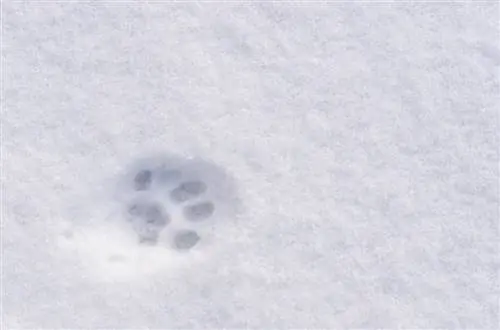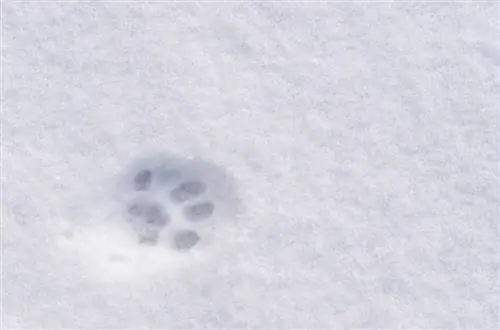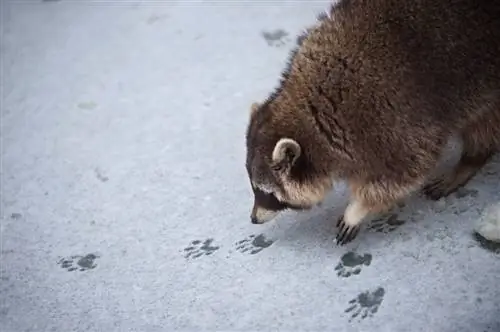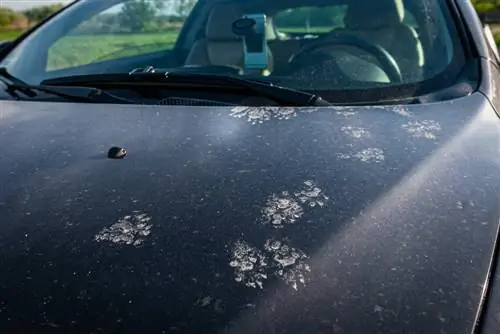- Author admin leonars@hobbygardeners.com.
- Public 2023-12-16 16:46.
- Last modified 2025-01-23 11:22.
Animal tracks are particularly easy to see in the snow. However, it is not always easy to determine which animal has strolled through the bright white. Here we explain how you can recognize marten tracks in the snow.

How do I recognize marten tracks in the snow?
You can recognize marten tracks in the snow by five elongated toes with claw marks, a sickle-shaped pad and a track size of approx. 5 cm long and 4 cm wide. When running fast, two blurry prints are next to each other; when running slowly, they can be seen clearly and offset.
Depending on the pace
When martens run fast, they jump similar to hares, so that both paws land next to each other. It is also noticeable that the hind paws often fall into the path of the front paws, so that no clear print can be seen. However, if the marten moves slowly, the paws can be seen offset and the print can be seen crystal clear on solid snow.
Recognizing marten tracks
Martens are active all winter long, like many other animals that leave tracks in the snow. All members of the marten family, including the badger, the weasel and the otter, can clearly seefive toesin the animal tracks in the snow. In contrast to badgers, otters and the like, martens haveclaw printsand the individual toes are slightly longer than e.g. B. in ferrets. The pad forms a crescent-like crescent unlike, for example, the otter, where the pad is more reminiscent of a three-leaf inverted clover.
The marten track is about 3.5-5 cm long and 3-4 cm wide, which makes it slightly smaller than a badger track (approx. 7cm long).
Distinguish marten tracks from cat or dog tracks
On the marten, in contrast to cat or dog tracks, five toes can be seen, while on cats and dogs only four can be seen. In addition, there are no claw prints to be found on cats and dogs; in marten tracks, small claw marks can be seen in front of all five toes.

All features at a glance
- Size: approx. 5cm long and 4cm wide
- Toes: 5 elongated toes with claw print in front of each toe
- Ball: sickle-shaped
- Paw path: Two blurry prints next to each other when running erratically, clearly visible and offset when running slowly






